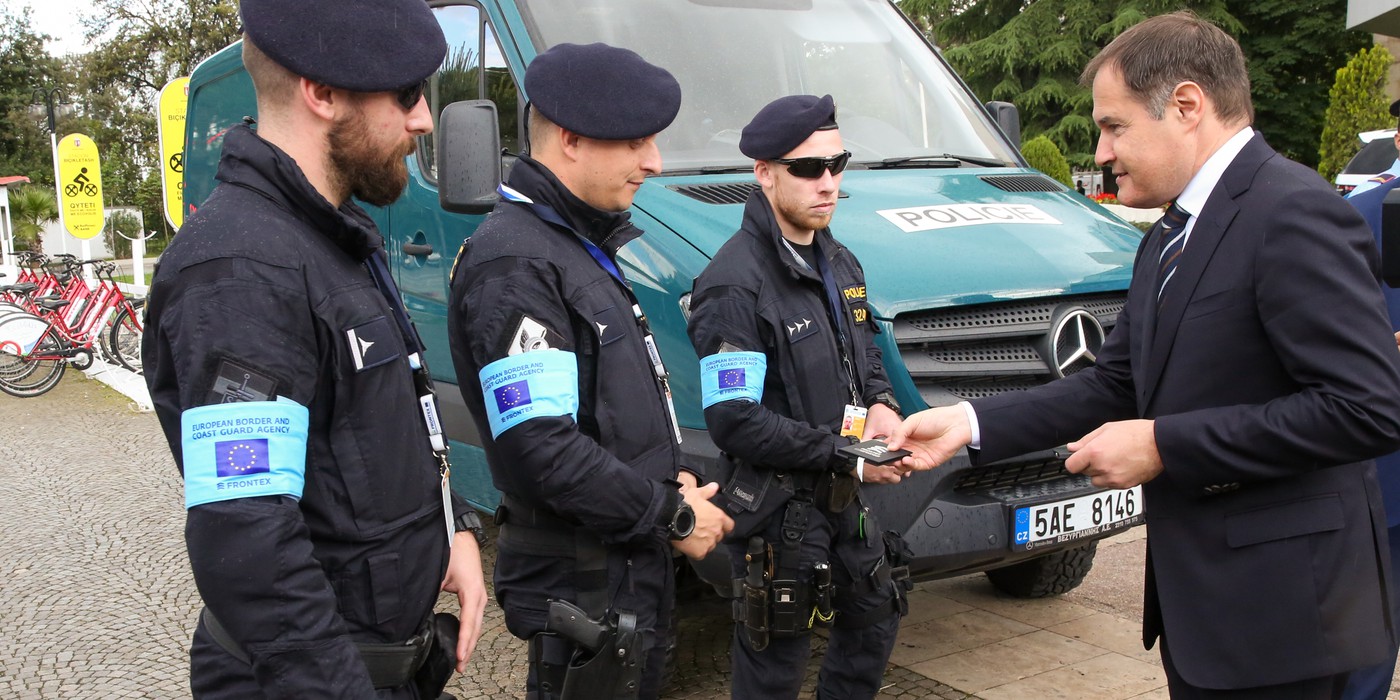EU: Despite acquiring training on how to recruit informants, Frontex insists that it does not recruit informants
Topic
Country/Region
06 April 2021
As previously reported by Statewatch, EU border agency Frontex acquired training from a private security company on the topic of “human intelligence”. Despite seeking lessons on “how to recruit an informant”, the agency has insisted that it does not recruit informants – rather, it “conducts interviews with migrants on a voluntary basis where the interviewed person's identity remains anonymous.”
Support our work: become a Friend of Statewatch from as little as £1/€1 per month.

Human intelligence
Following the publication of an initial Statewatch article on the training, German MEP Cornelia Ernst, submitted two parliamentary questions:
“1. With which authorities or companies have the EU justice and home affairs agencies signed contracts for the provision of training on human intelligence or similar topics, and what does this mean exactly?
2. Which national agencies or authorities are expected to make use of these services, and to what extent are Frontex and Europol already using undercover investigators or informants to gather intelligence?”
The terms of reference for the contract with private security company Chenega Europe, obtained by Statewatch through an access to documents request to Frontex, show that the five-day training course was primarily aimed at "debriefing advisers and operational analysts" from Frontex’s Risk Analysis Unit.
Chenega Europe offers a specific “"Humint/CHIS" (covert human intelligence source) training course, which “empowers delegates with the skills required to proactively target and recruit covert human intelligence sources,” although there is no mention of the term ‘CHIS’ in Frontex’s terms of reference for the training, nor is there any evidence that Frontex sought this training specifically from the company.
However, amongst the six “learning outcomes” for the training was “how to recruit an informant,” a term that would generally be interpreted to include individuals operating undercover – particularly in Frontex’s line of work, which covers both border control and the detection of cross-border crime, such as migrant smuggling.
Making a point
In a response to Ernst, Frontex director Fabrice Leggeri wrote that:
“Frontex does not conduct nor is involved in any type of covert human intelligence and does not use informants. Therefore, no specific training on covert human intelligence has been done and no such training is planned by Frontex. Frontex human intelligence activities uses only debriefing of migrants and information collection from deployed officers to joint operations managed by the Agency.” (emphasis in original)
Given that the terms of reference for the contract specifically stated that the training should include lessons on how to recruit an informant, Statewatch submitted a number of questions to the agency on 12 March.
In a response provided almost two weeks later, Frontex did not actually answer the majority of the questions submitted – but did seek to make very clear that it “does not recruit informants and doesn’t perform any covert technics [sic] similar to ones applied by national law enforcement agencies.”
Questions from Statewatch and answers from Frontex
1. Did the training provided by Chenega Europe cover the issue of "how to recruit an informant", either explicitly or by providing to those who received the training any skills that would assist with such an activity?
Frontex does not recruit informants and doesn’t perform any covert technics similar to ones applied by national law enforcement authorities. During the training, participants discussed how to identify and motivate persons who can take part in the so-called debriefing interviews conducted between Frontex debriefing officers and migrants on a voluntary basis, where the identity of the interviewed person remains anonymous.
2. If the training provided by Chenega Europe did not cover the topic of recruiting informants, why not?
Frontex does not recruit informants and doesn’t perform any covert technics similar to ones applied by national law enforcement authorities.
3. If the training provided by Chenega Europa did not cover the topic of recruiting informants, why was the company awarded the contract, given that the terms of reference specifically seek a learning outcome concerning "how to recruit an informant"?
During the tender procedure, the Company Chenega Europe received the highest final score. That’s why they were awarded with the contract. Frontex does not recruit informants and doesn’t perform any covert technics similar to ones applied by national law enforcement authorities.
4. If the training provided by Chenega Europe did cover the topic of recruiting informants, why did Mr Leggeri tell the European Commission that "no specific training on covert human intelligence has been done"?
Frontex does not recruit informants and doesn’t perform any covert technics similar to ones applied by national law enforcement authorities.
5. What is Frontex's understanding of "informant" in this context?
Frontex does not recruit informants and doesn’t perform any covert technics similar to ones applied by national law enforcement authorities.
The Agency conducts interviews with migrants on a voluntary basis where the interviewed person's identity remains anonymous.
Image: Frontex
Our work is only possible with your support.
Become a Friend of Statewatch from as little as £1/€1 per month.
Spotted an error? If you've spotted a problem with this page, just click once to let us know.

